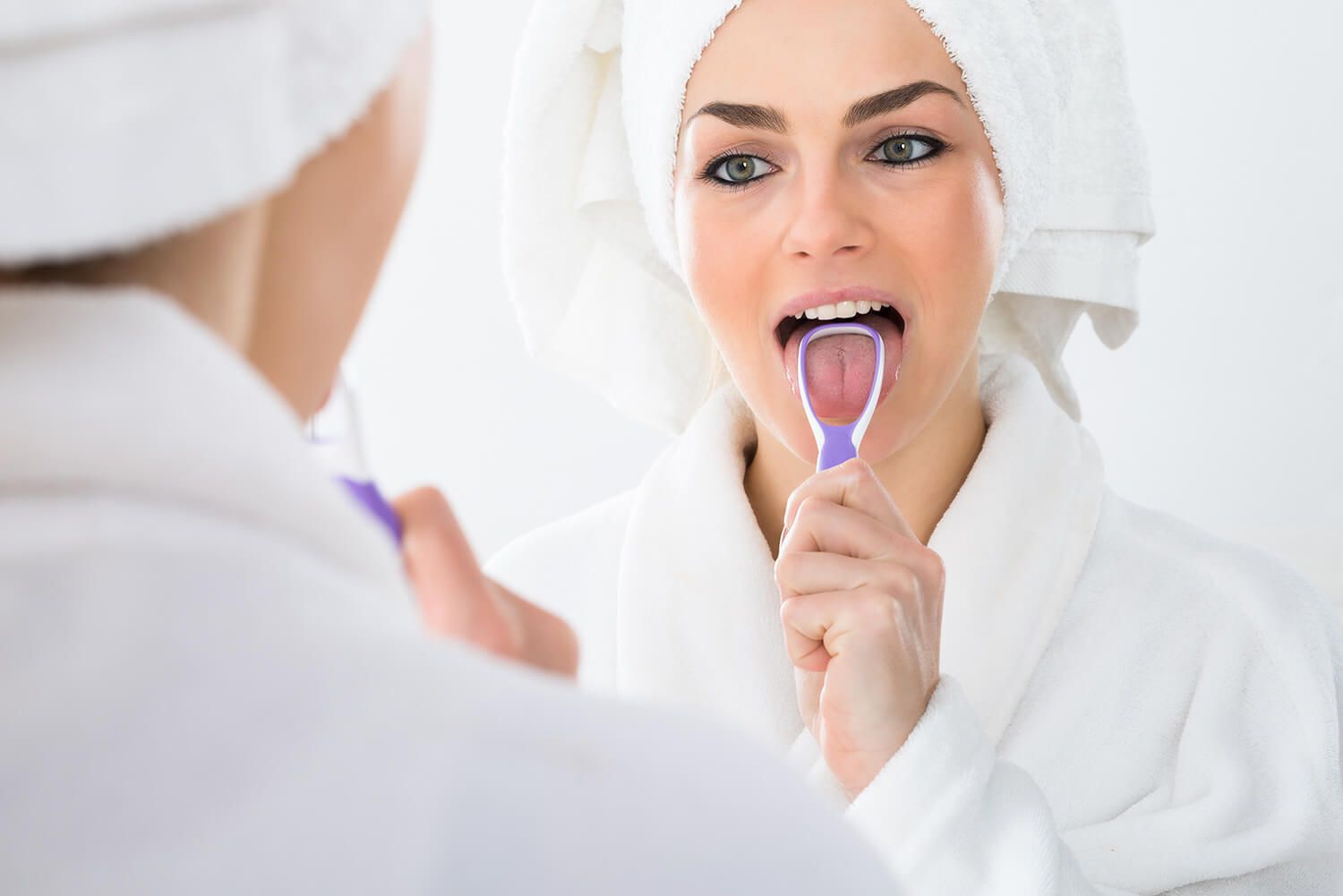Bad Breath Treatments

Bad Breath: Everyone Knows You Have It, Except You!
A friend once told me to never turn down an offered breath-mint or gum, because you never know their motivation. Bad breath is an often sensitive subject which dental patients are embarrassed to discuss. The follow paragraphs will answer some key questions and offer solutions to this delicate dilemma.
What is the cause of bad breath?
Bad Breath, halitosis, or oral malodor, is a common concern among people everywhere. Bad Breath is the result of microflora in our mouths that produce volatile sulfur compounds (VSC). Most bad breath originates in the mouth from VSCs on the tongue and between or around teeth. The dental diagnosis is often gingivitis (inflamed gums), periodontitis (bone loss) and tongue coating. Systemic conditions can also contribute to bad breath, such as diabetes and sinus or nasal related infections. Other causes of bad breath are external, or coming from outside the body. These include foods, drinks, and tobacco, for example garlic, onions, coffee, and cigarettes. Bad breath intensifies with dehydration or dry mouth.
How can I tell if I have bad breath?
Want to know how you if you have bad breath? First, take your fingernail and scrape the top of your tongue as far back as you can comfortably reach; wait 5 seconds and smell to evaluate for any odor. Second, floss your teeth using a piece of unscented floss and evaluate the floss after for odor. Sound gross? Sure, but we think it’s better you know before everyone else!


How can I treat my bad breath?
So, what can we do to reduce or eliminate bad breath? While external sources such as food, drink and tobacco can be avoided internal sources require more of an effort. Regular dental cleanings and checkups along with proper brushing, flossing and tongue cleaning will eliminate the largest percentage of oral microflora. Mouth rinses can eliminate VSCs. At Mangum Dental we recommend Closys, an American Dental Association (ADA) approved mouthwash containing safe and effective chlorine dioxide. Avoid mouth rinses containing alcohol which dry out the oral tissues and cause worse malodor. Gums, mints and essential oils can mask smell, increase saliva flow, and decrease the number of VSC. The dentists and hygienists at Mangum Dental advocate daily tongue cleaning with a tongue scraper, Closys® mouth rinse, and drinking plenty of water for confidence and fresh breath.



